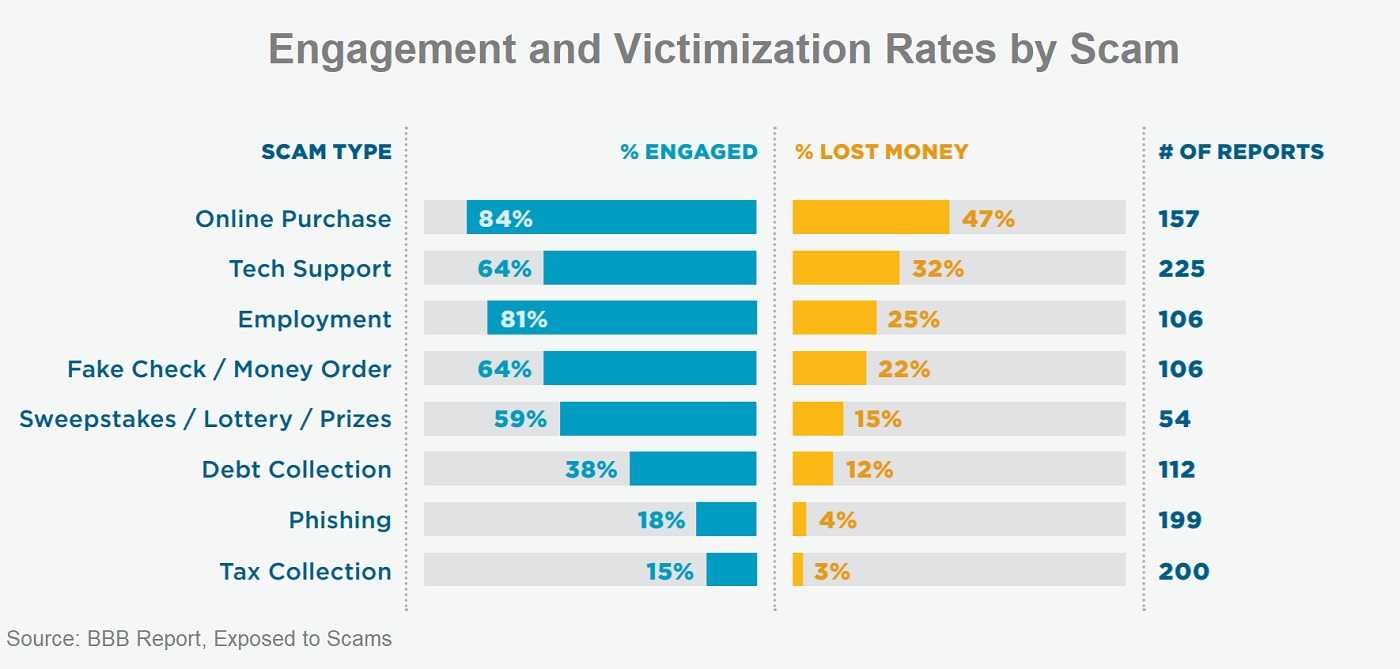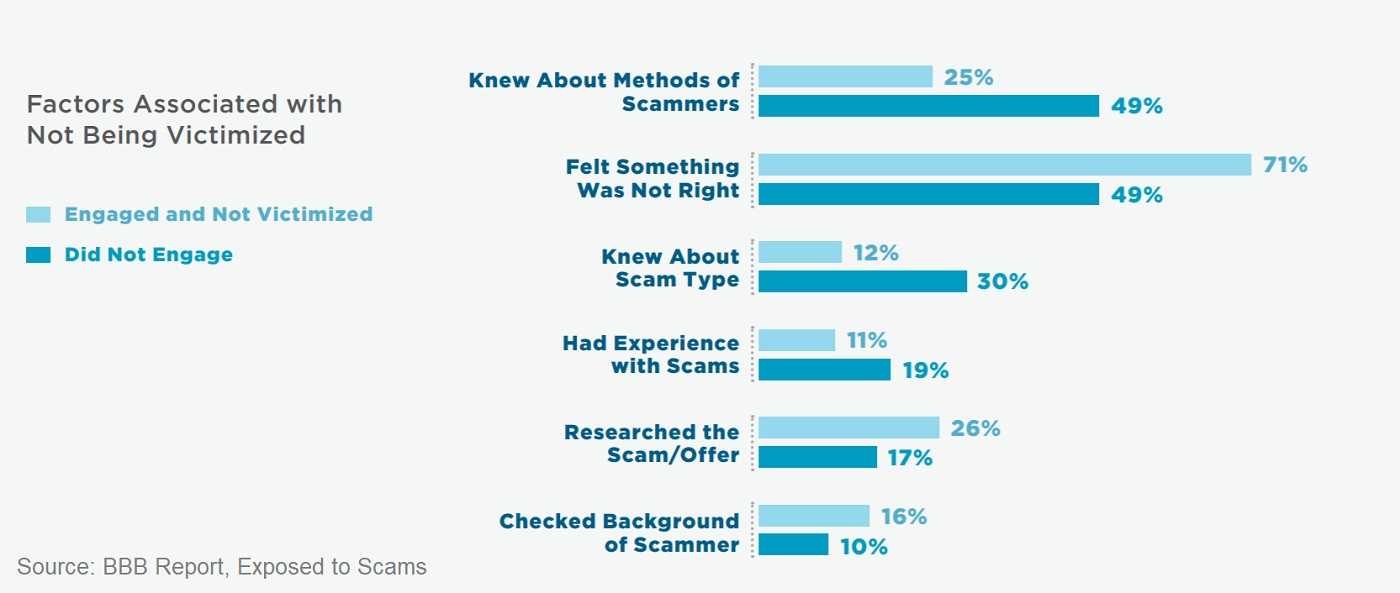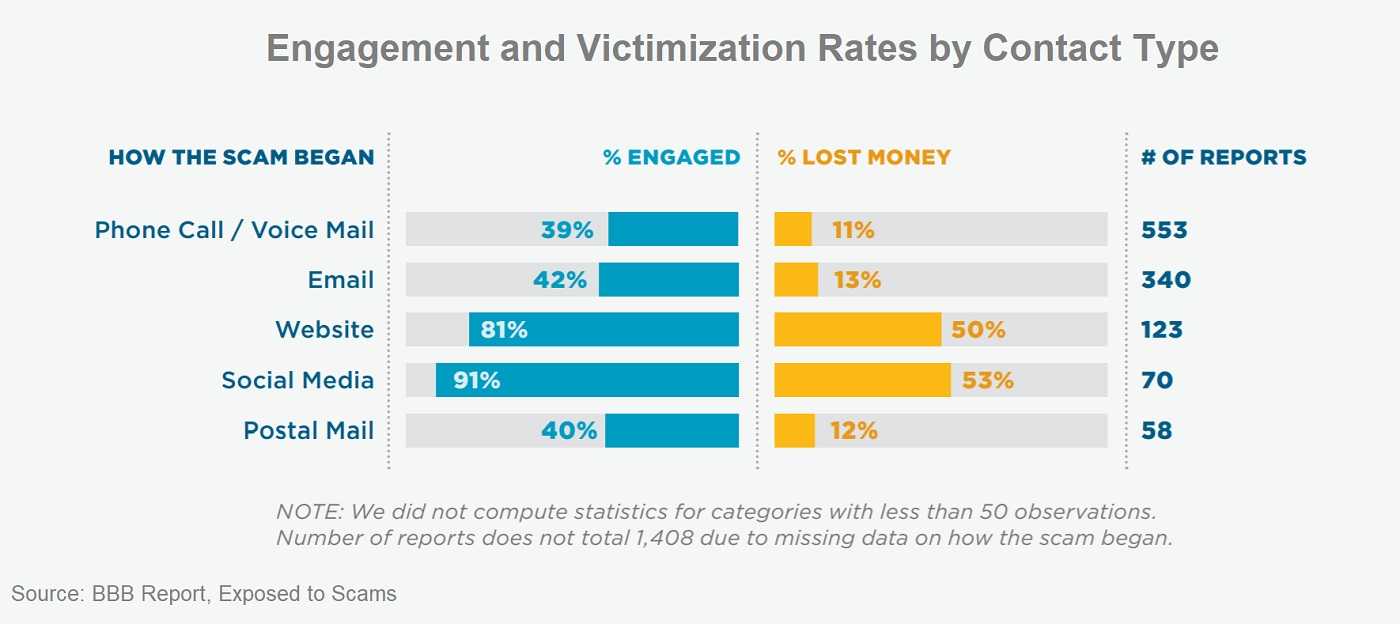Champions of consumers that they are, the Better Business Bureau (BBB) posted a warning reminder on their website about some of the risky online scenario’s consumers face every day. Keeping cyber safety in the forefront of our online activities isn’t always easy, but it’s always possible to do. The BBB knows this and wants consumers to be aware of some of the latest cyber scams and just how truly slippery they can be. It’s well-worth heeding what the BBB has to say about cybercrime and how to avoid the pitfalls that every hacker hopes we fall into.
Social Media Scams
Social media is a favorite hunting ground for cybercriminals. These platforms are full of shady characters, and users tend to let their guard down in an arena full of friends, but the BBB warns it’s a false sense of security. So, if you see an offer that looks too good to be true, or makes promises that seem unrealistic, or generally tries to lure you into some type of action – don’t do it. BBB’s post reports that out of the consumers who say they were exposed to a social media scam, 91% took the bait, and 53% lost money. Furthermore, scammers make up over half of all social media logins and one quarter of applications for new accounts are fake.

BBB Tip: Look before you leap – don’t be quick to jump on great offers or other temptations. Research the company behind any offer you may consider taking, including consumer reviews.
Keep “Smart Home” Devices Smart
All types of smart devices are popping up in homes everywhere. As convenient as they are, many consumers aren’t aware they open avenues for bad actors to exploit. In reality, your entire home can be hacked should a bad actor gain entrance to any device that is connected via the internet, including risking your privacy. Your home assistant, lighting and temperature controls, security system, and any other connected device can be manipulated remotely when criminals hack their way into smart homes.

BBB Tip: Secure smart devices and consider anti-virus protection for your smartphone. Make sure devices are configured with the highest level of security offered, including privacy settings. Keep all software up-to-date, encrypt your WiFi and name your router. And whatever you do, change the default passwords as soon as you have them installed.
Email Phishing Sneaks
Sneaky phishers are particularly good at gathering information about you, especially from your personal or work social media accounts. They pose as friends, co-workers, bosses, and other higher-ups in emails they send to you. Chances are if the sender is familiar, you’ll trust them. This allows hackers to send emails requesting action by you, and those in positions dealing with finances are targeted in particular. Always verify the identity of the sender, even if it takes a quick phone call or video chat to do so. Remember, a CEO would rather be asked to verify the request as opposed to sending company funds to a hacker.

BBB Tip: Beware the warning signs of Business Email Compromise (BEC) with every work email you receive. Independently verify, verify, verify before sending wire transfers or information. Your boss will appreciate it, especially if you catch the scam before it’s too late.